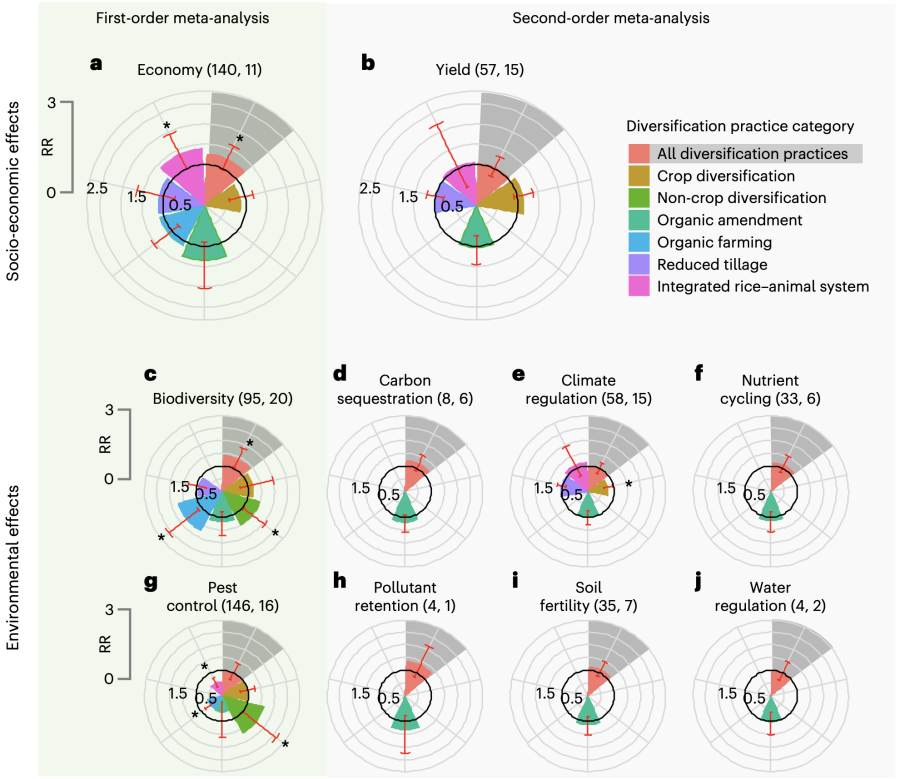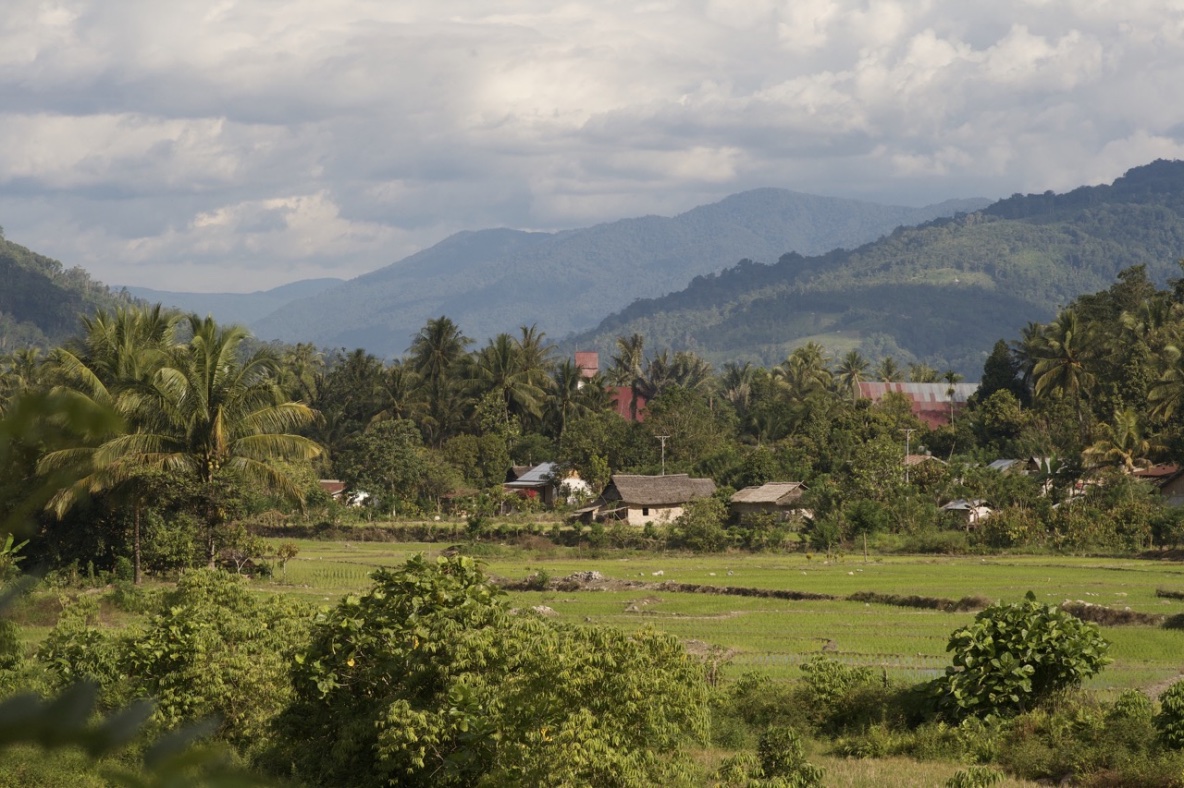14 Dec 2023
Rice is a staple food for half of the human population, but the benefits of diversified rice production on yields, economy, biodiversity, and ecosystem services have not been synthesized.
A new study from researchers at Xi’an Jiaotong Liverpool University, China in collaboration with 17 other institutions including from China, Germany, Hungary, and the Philippines synthesized 40 years of data in a series of meta-analyses to show for the first time how diversification can benefit environmental and socioeconomic aspects of global rice production.
Research has shown the benefits of diversification practices such as genetic varieties, flower strips, and integrated rice-fish farming for rice yields, farmers’ income, and biocontrol. In this new study published in Nature Food, an international research team shows that diversification can maintain soil fertility, nutrient cycling, carbon sequestration and yield. Diversified rice production can further increase biodiversity and economy by 40% and 26%, and reduced crop damage by 31%. By integrating results from a second-order meta-analysis and three first-order meta-analysis, these scientists could highlight, which diversification practices can help to enhance sustainability and resilience in global rice production.

Effects of agricultural diversification on socio-economic and environmental variables in global rice production
Synthesis work on the effects of agricultural diversification on global rice production is critical for governmental and farmer advisory alike. Findings from this study can help to advance the global food systems transformation by providing practical guidelines for the implementation of urgently needed sustainability and resilience in global rice production based on decades of scientific research on agricultural diversification.
The study is led by Dr Xueqing He, Assistant Professor at Xi’an Jiaotong Liverpool University and Professor Thomas Cherico Wanger, PI of the Sustainable Agricultural Systems Lab at Westlake University, China. Dr Yi Zou at XJTLU is also a co-author of the study.

Diversified rice production systems in Toro Village, Sulawesi, Indonesia.© T.C. Wanger
Dr Xueqing He, the lead author from XJTLU, emphasizes the study's importance:"This research clearly demonstrates that agricultural diversification should play a key role in the transition toward sustainable food systems."
While the the current findings provide strong motivation for widespread adoption of diversified agroecological practices, supporting global food security and environmental sustainability, The authors also note the need for further research to better understand trade-offs and optimize implementation of specific diversification strategies across diverse rice farming systems.
About the researchers
Dr. Xueqing He (何雪清) is an ecologist in the Department of Health and Environmental Science, School of Science at XJTLU and the first author of the study. She has a broad interest in and experience with sustainable agriculture research based on agricultural diversification, biological control, agroecology, organic farming, and life cycle assessment.
Dr Yi Zou (邹怡) is an ecologist and entomologist in the Department of Health and Environmental Science, School of Science at XJTLU studying conservation biology, landscape ecology and ecosystem services in agricultural and forest ecosystems. His research interests also include how to effectively measure biodiversity at different dimensions by model simulation and empirical studies.
Content provided:Dr Xueqing He
14 Dec 2023








